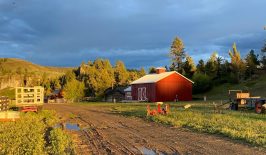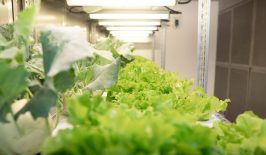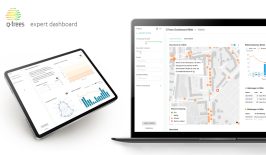Want to join in the global discussion about how to stop climate change? Have an idea about how to design a sustainable future? Then sign up to MIT’s Climate CoLab!
Tackling climate change is tricky business. There’s no silver bullet solution. Sometimes, initiatives that benefit the climate are actually looking to tackle a related issue (such as installing bike lanes to ease traffic congestion) and the flow on effects (lower CO2 emissions from a reduced number of cars on the road) are what ease our impact on global warming. In fact a study published in Nature in 2015 found that people are more willing to act on climate change if doing so also helps fix other social problems.
There are scores of examples of people self-organising and testing out processes to reduce humanity’s impact on the climate by breaking the problem into parts and solving specific issues. Social enterprises using renewable energy to bring light to people with no electricity; programmes that use food waste in innovative new ways (like as a source of electricity); and projects that fairly compensate wastepickers in developing countries all look to address a specific social or environmental problem but also contribute towards climate protection. Climate CoLab, an initiative of MIT Centre for Collective Intelligence, acts as an online makerspace that allows climate activists, scientists and experts to share knowledge and collaborate on concrete solutions to reducing global warming.
Join The Global Movement!
The CoLab is open to everyone, everywhere and is just shy of 50,000 registered members from across the globe – you simply sign up via the website. To set the collaboration wheels in motion, the platform hosts regular contests designed to solicit proposals from the CoLab community for new, innovative approaches to tackling climate change.
This year’s crop of proposals has seen people develop responses in areas such as renewable energy, smart cities, land use and more and include ideas like piloting e-bikes in Nairobi; using virtual reality to educate about climate change; and using smart dehydration technology to give a second life to food waste. Submissions to the current round of contests closed a few weeks ago and are under review by a panel of judges. Once finalists have been selected, the CoLab community can then vote for their favourite (voting begins 5 July). Winners go on to present their proposals at one of MIT’s yearly conferences and go in the running to win 10,000 USD as part of the grand prize. Last year’s winner was SunSaluter, a low-cost solar panel rotator that generates renewable energy and produces clean drinking water. Outside of the contest users can also pose questions, learn more about certain topics and start discussions about climate change on the platform’s forums.
The idea for a collaborative platform to leverage crowd intelligence and participation in the climate protection arena was first put forward in the MIT journal Innovations in 2007. The system was brought to life two years later with the first contest resulting in a White Paper being sent to the UN. More than 1,500 proposals have been submitted as part of the Climate CoLab contests since the platform was launched. The fact that the platform focuses on attainable, tailored ideas rather than utopian thinking allows for projects to develop that can realistically be implemented. have we piqued your interest? Join the Climate CoLab community here or check out this year’s contest proposals here.








